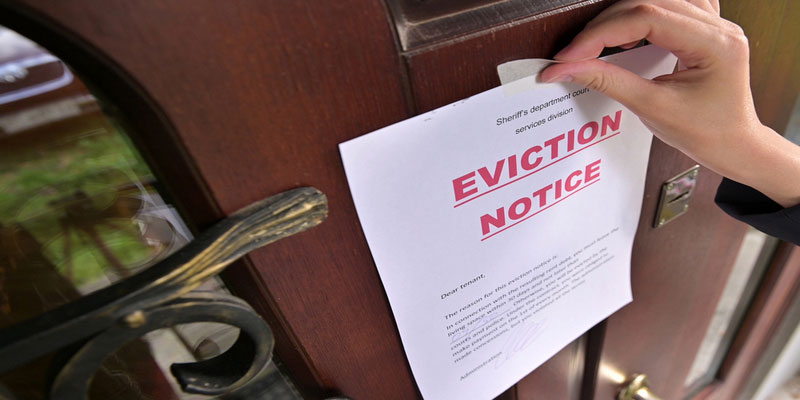When you sign a lease to rent a property, you legally agree with your landlord to pay rent on time and follow the lease terms. But money or personal problems can make it hard to meet these obligations. If you can't pay your rent or break the lease rules, your landlord may start eviction to get you out of the house. One thing that can happen if you are kicked out of your home is that it could hurt your credit score. When a credit bureau hears about an eviction, it can appear on your credit report for up to seven years. This bad thing on your credit report could make it harder for you to rent a new place or get credit in the future.
Credit Scores: How They Work
Before discussing how being kicked out of your home can hurt your credit score, knowing how credit scores work is essential. Based on a person's credit history, their credit score is a number that shows their creditworthiness. They are used by lenders, landlords, and other groups to decide if a credit application should be approved and what interest rate to offer. Credit scores usually range from 300 to 850, with higher scores showing that a person is more creditworthy.
How Evictions Affect Your Credit Score
Getting kicked out of your home can hurt your credit score in multiple ways.
Late Rent Payments
The most common way an eviction hurts your credit score is by making you pay your rent late. If you can't pay your rent on time, your landlord might tell the credit bureaus about it. Your credit report can show late payments for up to seven years, and each one can lower your score by up to 100 points.
Accounts For Collection
If you get kicked out of your flat, your landlord might send your unpaid rent to a collection agency. The debt will then be reported to credit bureaus by the collection agency, hurting your credit score. Collection accounts can hurt your credit score by as much as 100 points and stay on your credit report for up to seven years.
Public Documents

Sometimes, a landlord may sue a tenant for not paying rent or breaking the lease terms. If the landlord wins the case, a judgment will be made against the tenant, and everyone can see it. Public records can stay on your credit report for up to seven years and lower your score by up to 200 points.
How To Mitigate The Damage
If you are going to be kicked out of your home or have already been kicked out, there are things you can do to keep your credit score from going down too much.
On Time, Pay Your Rent.
Paying your rent on time is the most important thing you can do to keep an eviction from hurting your credit score. Talk to your landlord if you can't pay your rent and see if you can set up a payment plan.
Deal With Your Landlord
If your landlord wants to kick you out, try to work something out with them, so you don't have to go to court. You can work out a payment plan or another deal to let you stay in the property.
Pay Any Outstanding Debts
If you still owe money to your landlord, try to pay it off as soon as possible. This will keep your landlord from sending your debt to a collection agency, which can hurt your credit score.
Dispute Any Errors

If your eviction led to mistakes on your credit report, you should tell the credit bureaus about them. They have 30 days to find out what's wrong and fix it.
Conclusion
A bad credit score can be caused by being kicked out of a place, but it's not the end of the world. It's essential to take steps to fix the damage and stop more bad things from going on your credit report. You can improve your credit score by paying your rent on time, negotiating with your landlord, paying off any debts you still owe, and disputing any mistakes on your credit report. Building good credit takes time and work, and being kicked out of your home shouldn't end your financial future. You can fix your credit and get back on track financially if you work hard, don't give up, and act responsibly with your money. So, if you are facing eviction, don't give up hope. Instead, take action and make a plan for what to do next.



